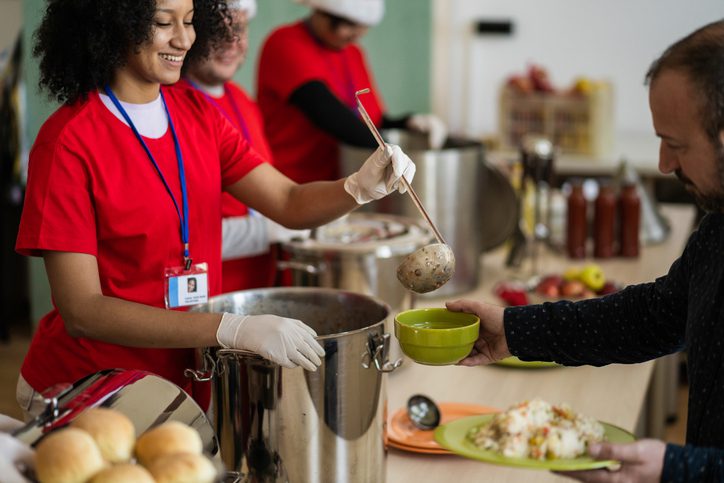In December 2024, the nonpartisan nonprofit USA Facts reported that in Iowa, approximately 35.5% of residents were active volunteers. Not bad overall, although Utah residents ranked much higher at 68%. If you’re in recovery, volunteering can be a cornerstone of personal growth, offering opportunities to rebuild self-esteem, foster a sense of purpose, and help expand your social circle. Here are some of the top reasons why.
How Volunteering Benefits You—and Others
When you’re in early recovery, it’s critical to be fully focused on your health and well-being. But as you start to adjust to a sober life, it’s easier to recognize what elements you’d like to add to it so you’re living more by design, not simply existing. Giving back offers many advantages—here are just a few.
Rebuilding Identity and Purpose in Recovery
Volunteering provides an avenue to rebuild essential components of personal identity. By contributing to causes that align with your values, you discover strengths and passions. Additionally:
- Research shows that volunteering boosts self-esteem and self-confidence by providing people with meaningful roles in society.
- Volunteering also enhances satisfaction and purpose, especially for those experiencing significant life changes.
- Studies highlight that a strong sense of purpose can reduce the likelihood of relapse by helping you manage triggers and increasing personal motivation.
Fostering Social Connections
Participating in charitable pursuits naturally creates opportunities to build relationships with others who share similar values and interests. Other points:
- Research shows that social isolation and loneliness are linked to higher rates of substance use and relapse, making connection-building a vital part of recovery.
- People who volunteer regularly are 40% more likely to report strong social networks, according to AmeriCorps.
- Joining volunteer groups provides an opportunity to form relationships in substance-free environments, encouraging healthier social habits.
Boosting Mental and Physical Health
The act of helping others triggers the release of endorphins, the body’s natural “feel-good” chemicals, leading to what’s often called a “helper’s high.” In recovery, this natural boost can be particularly meaningful. Also:
- According to HelpGuide.org, “volunteering helps counteract the effects of stress, anger, depression, and anxiety. The social contact aspect of helping and working with others can have a profound effect on your overall psychological well-being.”
- Helping others also stimulates the brain’s reward pathways, releasing endorphins and reducing stress-related biomarkers like cortisol.
- HelpGuide also notes that by being involved in different causes, people “tend to walk more, find it easier to cope with everyday tasks, are less likely to develop high blood pressure, and have better thinking skills. Volunteering can also lessen symptoms of chronic pain and reduce the risk of heart disease.”
Building Structure and Accountability
Volunteerism provides a consistent and meaningful way to fill time, reducing the risk of boredom—a common trigger for relapse. Additionally:
- Research indicates that people in recovery who maintain structured daily routines and habits are twice as likely to sustain long-term sobriety.
- Regular volunteering also instills a sense of responsibility and consistency—essential for those relearning life skills post-addiction.
- Structured schedules reduce idle time, a known trigger for cravings or relapse.
Cultivating Gratitude and Perspective
There are many reasons why gratitude is beneficial to your health. One way to continue to create space for it is by helping others. Studies also suggest that:
- Interactions with individuals in need often increase your empathy and life satisfaction, reducing self-centered thoughts.
- Witnessing other people’s resilience helps to strengthen your thankfulness and resolve to overcome challenges.
- Gratitude is associated with higher overall happiness and reduced anxiety levels.
Another key benefit: the impact of your volunteerism is universal. By participating together, other people achieve a sense of belonging, strengthen communities, and promote empathy and understanding. Volunteering reminds us that we’re all interconnected and that each person has the capacity to make a difference. Whether in recovery or simply seeking greater fulfillment, volunteering is a transformative experience that nurtures the mind, body, and soul.
Ivory Plains Helps You Build a Brighter Future
At our addiction rehabilitation program in Adair, Iowa, our board-certified professionals understand that many people establish the immediate goal of sobriety, but then often need help creating the life they desire after that. Through our evidence-based treatment methods and holistic lifestyle techniques, we help you explore new ways of thinking and being so you can take charge of your future. Incorporating volunteer work is just one of many ways to do this. Ask a member of our admissions team about Ivory Plain’s whole-person philosophy of care.





